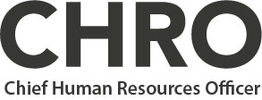HR in 2020: From closed hierarchies to open networks

It is 2020. The role of HR has changed considerably in recent years. We have seen many organizations changing from tight, closed hierarchies into more open networked organizations. The place and the role of the flexible workforce has also changed. Where flexible workers were previously seen (and treated) as second rate, they are now considered an important part of the organization. Eight aspects of the role of HR in 2020 we have seen changing.
1. HR focuses on a broader group
Previously, the focus of HR was on staff with a permanent contract. Today HR focuses on a much broader and more diverse group. The distinction between temporary employees and employees with a permanent employment has faded. The contract format is not important; it is about the contribution that someone can make to the organization, today or in the future.
2. HR masters workforce planning
Workforce planning has become increasingly important, and HR plays an important role. HR sits in the middle of the business, and therefore has good understanding of the strategic plans. What kind of people do we need? What are the critical capabilities we need to strengthen? Where can we find the people with the necessary skills?
3. HR focuses less on positions, and more jobs to be done
HR previously spent much time formulating comprehensive job profiles. Fortunately, those times are gone. It is now much more about jobs: what do we need to accomplish for our customer? What capabilities do we have in the house and which do we have to find elsewhere?
4. HR has become faster and more agile
If in the past you wanted something to happen fast, you did not involve HR. This would delay the process, as HR had the tendency to hide behind rules and procedures. Today this is different. HR is like a spider in the web. If you need help in strengthening your team and you can not find the solution, then HR is the right partner to involve. HR is firmly rooted in various relevant communities. Therefore, HR has quick access to ideas and suggestions from others.
5. HR makes creative use of technology
Technology is deployed on several fronts. High-speed mobile communication with management and staff. To provide real-time feedback. To facilitate training on the job. To measure and improve the performance of employees. HR has developed into HR Tech.
6. HR has access to a larger talent pool
If you limit yourself to the talent that you already have in your organization, you do not always get the best. Many top talent is no longer looking for a permanent contract, but wants to do interesting and challenging assignments for (various) organizations. In recent years, HR started looking more at external talent pools. Not only in their own country, but also increasingly international. Organizations are also much more willing to share their own talent pool. Employees are not always properly challenged, and can learn a lot by working temporarily for another organization.
7. HR relies on facts, not opinions
HR has learned from marketing. Measuring is knowing. By clever techniques the preferences of (potential) employees can be identified and organizations can respond better to the individual wishes and needs. HR has learned a lot in the field of people analytics, and regularly comes with surprising insights. HR knows what motivates people.
8. HR no longer needs to pamper management
The number of layers is reduced in organizations. With fewer managers life is easier. Many HR processes are automated and managers and employees love it. HR can focus more on core tasks, such as selecting talent and finding creative ways to increase productivity. The role of HR will widen in the coming years. A key question is how HR and the organizations they are part of can play a role to reduce the gap between people who have work and those who don’t.
—
By Tom Haak
Tom Haak is the founder and director of The HR Trend Institute. He is also partner at Crunchr. Prior to founding the HR Trend Institute in 2014, Tom held senior HR positions in companies as Arcadis, Aon, KPMG and Philips. The HR Trend Institute detects, follows and encourages smart and creative use of trends in the field of people and organizations, and also in adjacent areas.














